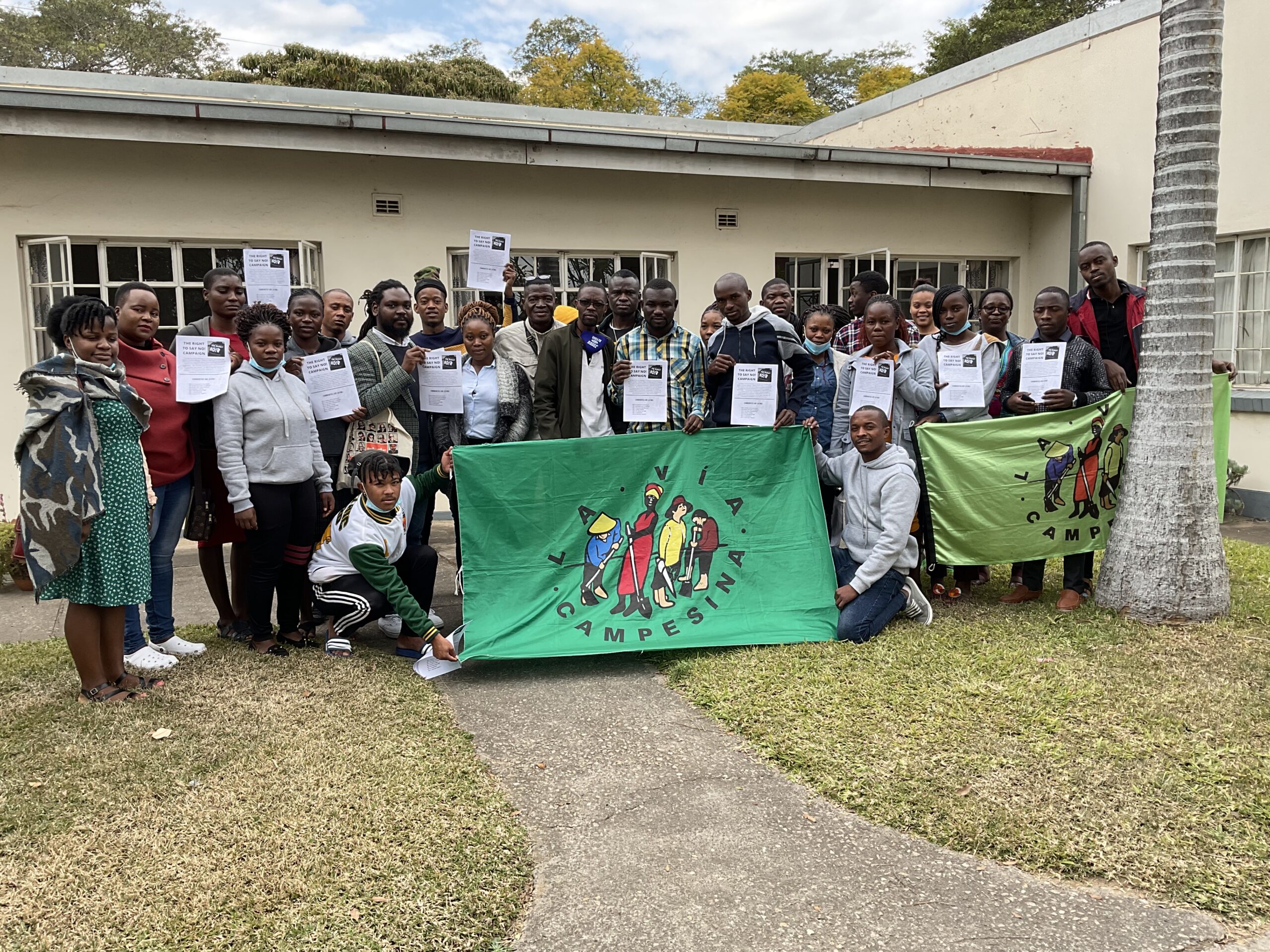Support strengthening of youth’s skill development that protects and restores ecosystems

La Via Campesina Southern and Eastern Africa Youth Articulation Statement
We the young peasants, members of La Via Campesina in Southern and Eastern Africa (LVC SEAf) convened in Harare, Zimbabwe from 12th to 19th July 2022 on the occasion of the 2022 LVC SEAf Youth Articulation meeting.
The moment also included a self-organized formation moment on the Political Economy and Agroecology in Africa. The session aimed at building the capacity of young men and women to understand the historical context of existing agriculture and food systems globally and continentally and the practical implementation of agroecology practices. The session also focused on the Climate crisis, looking at the background, current status and how youths can play a role in providing lasting solutions through a push for climate justice.
We recognize that agroecology has the ability to restore degraded agricultural ecosystems, including loss of biodiversity, and sustainably feed many African countries’ rapidly expanding populations. Agroecological production systems are diverse and improve ecosystem health and services, making ecosystems more resilient to changing climatic conditions, significantly reduce greenhouse gas emissions, and address socioeconomic barriers that perpetuate injustices and inequalities in our food systems. Additionally, the peasant agroecology approach is transversal, contributing importantly to various layers and dimensions of local social contexts.
We acknowledge the important role played by numerous actors in various countries across Eastern and Southern Africa and beyond in expanding agroecology initiatives aimed at smallholder farmers, the majority of whom are resource-constrained women, youth, and men who reside in rural regions and provide over 70% of the food we consume. We also acknowledge that in order to scale up agroecology, various actors will need to work together consistently and toward a similar goal.
We further recognize that Agroecology is the best way to adapt to climate change and mitigate its’ effects, because it uses farming techniques like crop diversification, conservation tillage, green manures, natural fertilizers, biological pest control, rainwater harvesting, and production of crops and livestock in ways that store carbon and sustainably protect natural resources.
We, therefore, call upon:
Governments to:
- Take decisive action towards the domestication of the United Nations Declaration on the Rights of Peasants and Other People Working in Rural Areas (UNDROP) which sets platforms for voices from rural communities to be heard and stresses that small-scale farmers especially the youth have a right to protect and conserve production resources and the productive capacity of their lands.
- Support creation of conditions for strengthening youths’ skills development to create ethical and profitable opportunities in areas and activities that protect and restore ecosystems.
- Support peasant family farms in all diverse ways as they are the key champions of agroecology, a lasting solution to achieve climate justice.
All Youth to:
- Engage in policy influencing forums that are focused on addressing climate change and upscaling agroecology.
- Embrace agroecology and sustainable food systems despite the notion that agroecology is labor intensive.
- Engage in farmer-led research and training programs based on agroecology.
All actors to:
- Take deliberate efforts to support youth in design and implementing strategies for significantly increasing the involvement of youth throughout the agroecological value chains. Strategies include use of appropriate and just ICT-based solutions, collaborations and interventions in schools and colleges, as well as the use of entertainment and the promotion of innovative and profitable value chains to raise interest and ability to absorb more youth in their territories.
- Popularize and avail information on peasant agroecology to the youth at local, national and regional levels.
